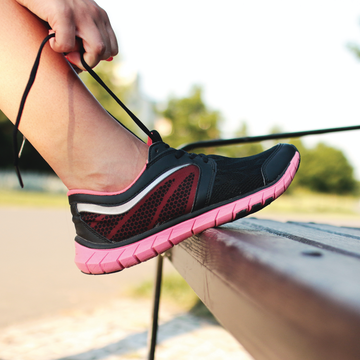Diet vs Exercise: Which is More Important for Weight Loss?
Both diet and exercise play an essential role in health, but when it comes to weight loss is diet more important than exercise?
Moving your body in a way you enjoy is incredibly beneficial for improving your mental health, overall physical health, energy levels and sleep. Along with this, exercise is often considered a crucial part of weight loss and weight management.
But when it comes to exercise vs diet – what matters most?
According to Australian Institute of Health and Welfare, 2 in 3 (67%) adults and 1 in 4 children and adolescents aged 2-17 were overweight or obese in 2017-18. And when it comes to the overweight and obese population, research from epidemiologist's DR's Amy Luke and Richard Cooper in the U.S. suggests that contrary to the popular belief, exercise is in fact not key to weight loss in obesity.
So, if your goal is weight loss for whatever reason, they suggest that modifying your food environment through reducing calories is where the answer lies.
Ultimately, diet is more important than exercise when it comes to weightloss, but exercise still plays a major role in overall health and wellness. As they put it in the International Journal of Epidemiology, "physical activity is crucially important for improving overall health and fitness levels, but there is limited evidence to suggest that it can blunt the surge in obesity".
Weight loss is a result of a calorie deficit, meaning you are consuming less calories than your body expends. It takes a lot of energy just to keep the heart beating and the human body alive at base level. We get this energy to fuel our body from the food we eat in the form of calories. Moving our bodies purposefully through exercise or incidentally through our activities of daily living uses or “burns off” some of the calories that we consume and may help edge us towards that deficit.
However, the vast majority of calories that we consume are spent on just keeping our complex bodies alive. This is a key part of DR Luke and DR Cooper’s stance, when they write “extremely small proportions of the U.S. population engage in levels of energy expenditure at a sufficiently high level to affect long-term energy balance”.
At Be Fit Food, we advocate for safely moving your body in a way you enjoy for its numerous health benefits (it’s in our name!). But we encourage you to consider that if weight loss is your main goal, that the focus is best placed not solely on exercise, but also on modifying your food environment by reducing calories. And that is where we come in, by providing delicious and nutritious calorie-controlled meals and snacks straight to your door to help you achieve your goals while taking all the guess work out.
References
Luke A, Cooper RS. Physical activity does not influence obesity risk: time to clarify the public health message.
International Journal of Epidemiology 2013;42:1831–1836. doi:10.1093/ije/dyt159AIHW (Australian Institute of Health and Welfare) (2020) ‘Overweight and obesity’, AIHW, Australian Government, accessed 18 March 2021.









